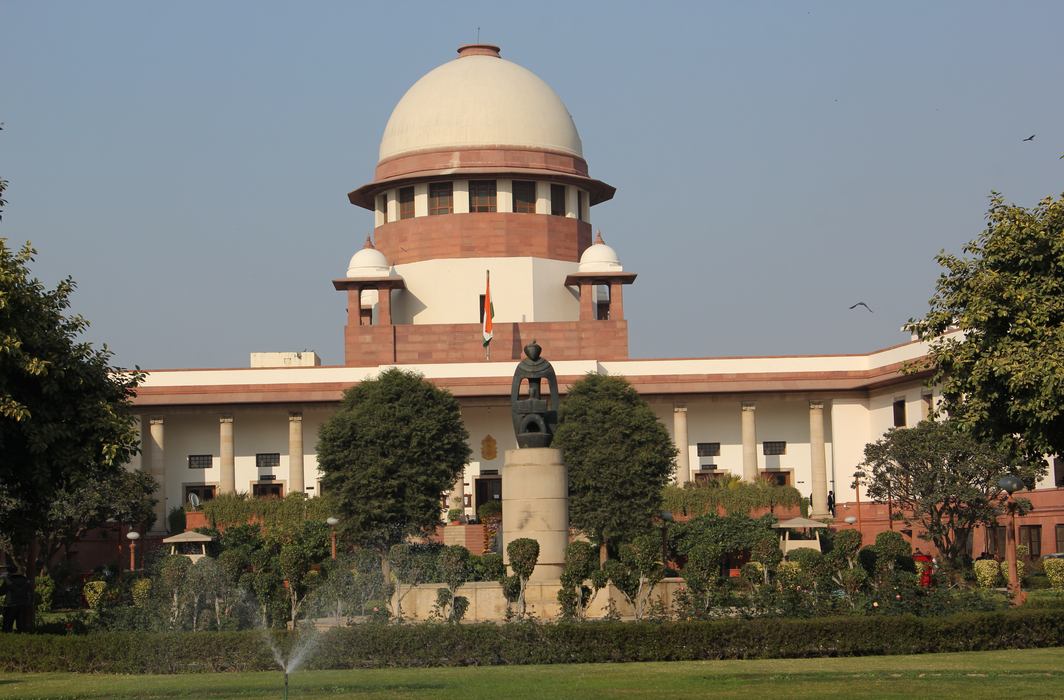The Supreme Court today on Wednesday dismissed the review petition challenging the Constitutionality of Aadhaar Act by a majority of 4:1. The dissenting judgment was given by Justice DY Chandrachud
The Supreme Court five-judge bench headed by Justices A. M. Khanwilkar, Ashok Bhushan, , S. Abdul Nazeer, B. R. Gavai and D. Y. Chandrachud has pronounced its order on a set of review petitions challenging the Supreme Court 2018, Aadhaar Judgment whereby it had upheld the Aadhaar (Targeted Delivery of Financial and Other Subsidies, Benefits & Services) Act, 2016 as Constitutional. By a majority of 4:1 the Supreme Court has dismissed the review petitions.
Justices A. M. Khanwilkar, Ashok Bhushan, S. Abdul Nazeer, & B. R. Gavai has said
“In our opinion, no case for review of judgment and order dated 26.09.2018 is made out. We hasten to add that change in the law or subsequent decision/judgment of a coordinate or larger Bench by itself cannot be regarded as a ground for review. The review petitions are accordingly dismissed.”
Whereby, Justice Dr D. Y. Chandrachud has given his dissenting view and said the present batch of review petitions should be kept pending until the larger bench decides the questions referred to it in Rojer Mathew.
“If these review petitions are to be dismissed and the larger bench reference in Rojer Mathew were to disagree with the analysis of the majority opinion in Puttaswamy (Aadhaar-5J.), it would have serious consequences-not just for judicial discipline, but also for the ends of Justice. In all humility, I conclude that the Constitutional principles of consistency and the rule of law would require that a decision on the Review Petitions should await the reference to the Larger Bench,”
-he said.
Justice Dr. D. Y. Chandrachud had previously as well given his dissenting view in Aadhaar Judgment, while holding that the decision of the Speaker of the House of People to certify the Aadhaar Act as a ‘Money Bill’ under Article 110(1) was unconstitutional.
The batch of petitions which were filed in the Apex Court had sought a review of the decision of a Constitution Bench in Puttaswamy (Aadhaar-5J.) v Union of India1 [“Puttaswamy (Aadhar-5J.”]. Among the issues which arose for decision, the Court had to answer two critical questions: (i) whether the decision of the Speaker of the House of People2 under Article 110(3) of the Constitution, to certify a bill as a ‘Money Bill’ under Article 110(1) is final and binding, or can be subject to judicial review; and (ii) if the decision is subject to judicial review, whether the Aadhaar (Targeted Delivery of Financial and Other Subsidies, Benefits and Services) Act, 2016 (the “Aadhaar Act”) had been correctly certified as a ‘Money Bill’ under Article 110(1) of the Constitution.
On the second question Justice Chandrachud has said,
“The issue whether judicial review can be exercised over a decision of the Speaker of the House of People under Article 110(3), arose subsequently before another Constitution Bench in Rojer Mathew v South Indian Bank Ltd4 (“Rojer Mathew”) This was in the context of whether some of the provisions of the Finance Act, 2017 (relating to appointments to Tribunals and the conditions of service of members) could have been certified as a ‘Money Bill’ under Article 110.”
“Consequently, the correctness of the judgment in Puttaswamy (Aadhaar5J.), in relation to what constitutes a ‘Money Bill’ under Article 110 of the Constitution, the extent of judicial review over a certification by the Speaker of the House of People and the interpretation which has been placed on the provisions of the Aadhaar Act while holding the enactment to be a ‘Money Bill’, are issues which will be resolved by a larger bench, which is yet to be constituted,” he said.
He further held, “The larger bench has not been constituted, and is yet to make a determination. Dismissing the present batch of review petitions at this stage – a course of action adopted by the majority – would place a seal of finality on the issues in the present case, without the Court having the benefit of the larger bench’s consideration of the very issues which arise before us…
The correctness of Puttaswamy (Aadhaar-5J.) on issues pertaining to, and arising from, the certification of a Bill as a ‘Money Bill’ by the Speaker of the House of People has been doubted by a co-ordinate Constitution Bench in Rojer Mathew. With the doubt expressed by another Constitution Bench on the correctness of the very decision which is the subject matter of these review petitions, it is a constitutional error to hold at this stage that no ground exists to review the judgment. The larger bench’s determination would have an undeniable impact on the validity of the reasons expressed in Puttaswamy (Aadhaar-5J.), on the constitutional issues pertaining to and arising out of the certification by the Speaker of the House of People. The failure to recontextualize the decision of the larger bench with regard to the Aadhaar Act being a ‘Money Bill’ under Article 110(1) will render it a mere academic exercise.”
A Bench comprising Chief Justice S.A. Bobde and Justices A.M. Khanwilkar, D.Y. Chandrachud, Ashok Bhushan and L. Nageswara Rao was scheduled to hear the review in chambers on 9 June 2020. However, on 8 June, the Court adjourned the closed-door hearing. A new five-judge bench consisting of Justices A.M. Khanwilkar, D.Y. Chandrachud, Ashok Bhushan, S Abdul Nazeer and B.R. Gavai was set to hear the matter in chambers on 11 January 2021. Today on 20th January, 2021, the bench has dismissed the review petition by majority of 4:1, Justice Dr D.Y. Chandrachud dissented.
Also Read: Supreme Court upholds Sections 3, 4, 10 of Insolvency and Bankruptcy Code (Amendment) Act, 2020
45777-2018-5-1001-25344-Judgement-11-Jan-2021

